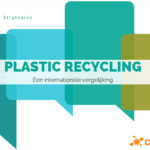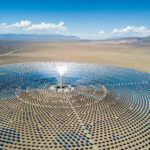Electrochemistry offers major opportunities for converting resources such as biomass, CO2 and nitrogen directly into fuels and intermediate products for plastics using sustainable energy. Rather than using the Haber-Bosch process, fertiliser can be produced electrochemically from nitrogen, for example. Considering that the current process is the world’s most energy-intensive chemical production process, accounting for 3% to 5% of the world’s CO2 emissions, a new technique carries enormous potential for decarbonisation, and it can also contribute to the energy storage challenge. Chemical companies are working together with energy companies and knowledge institutions in a variety of partnerships in The Netherlands to put this sort of technology into practice.



